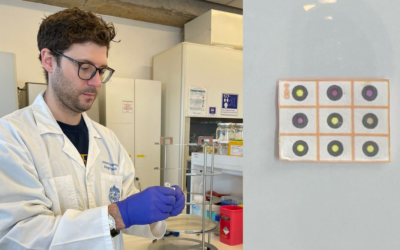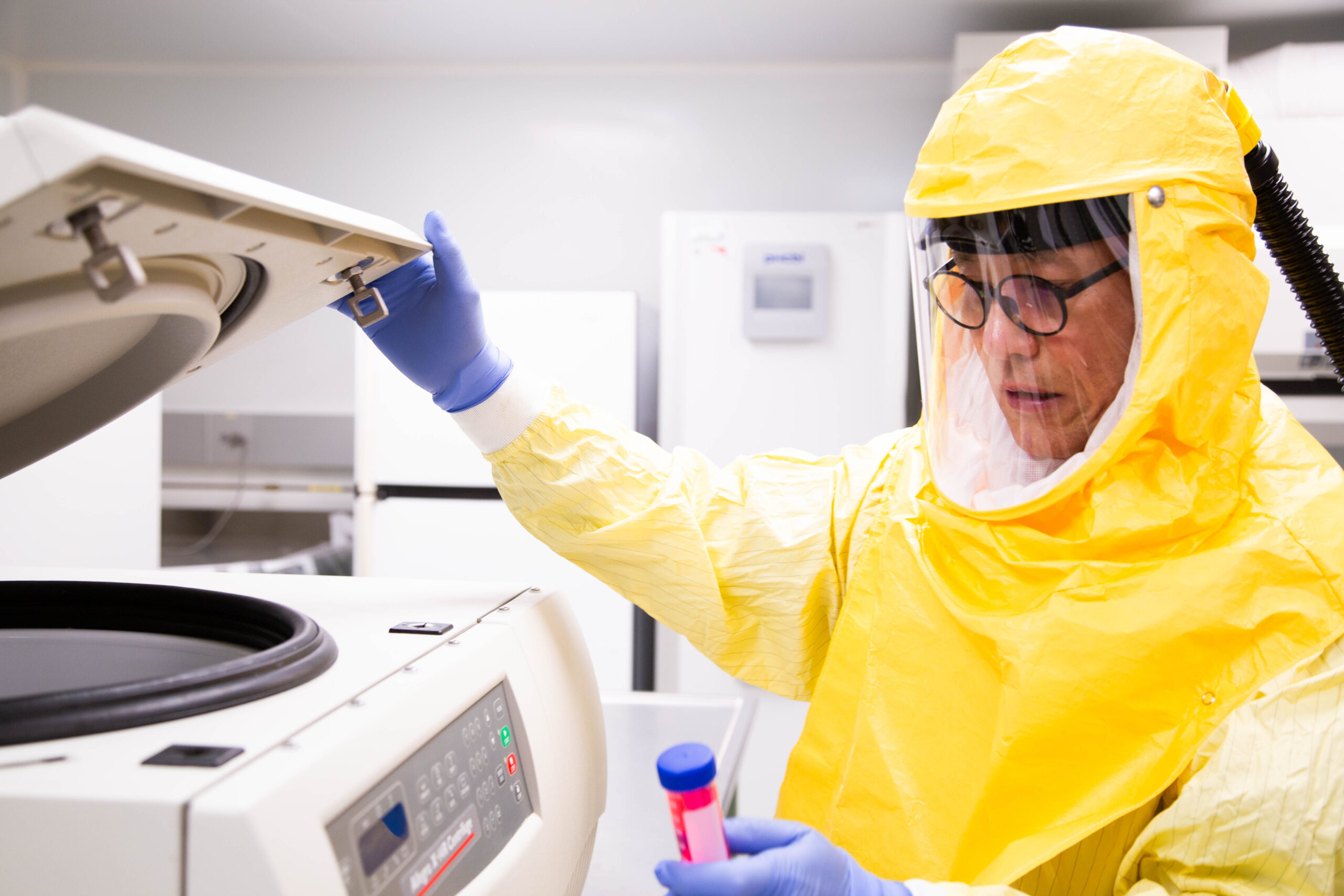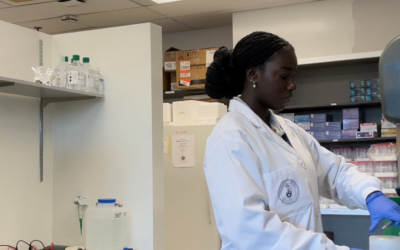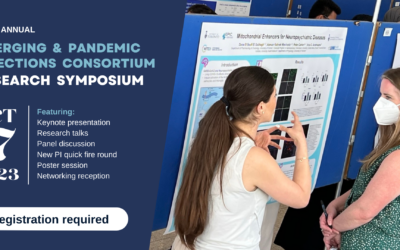News & Events
Events
News
Harnessing synthetic biology to create low-cost diagnostics and improve infectious disease surveillance
EPIC Doctoral Award recipient Justin Vigar is using synthetic biology to develop rapid, low-cost diagnostic tools to combat infectious diseases. He and his lab mates are creating a customizable, paper-based platform that uses pocket-sized slips of paper with genetic circuits embedded onto them. The circuitry is built by freeze drying proteins and other molecular components, which function as amplifiers and sensors, directly onto the paper.
What you need to know about the three fall vaccines, according to U of T experts
As cold and flu season approaches, Canadians are facing respiratory syncytial virus (RSV), an increase in COVID-19 activity, and influenza — but also have new options to protect their health. To learn more, we spoke with Shelly Bolotin, director of the Centre for Vaccine Preventable Diseases, Shaun Morris, a pediatric infectious disease physician at the Hospital for Sick Children, and Allison McGeer, an infectious disease specialist at Toronto’s Sinai Health.
U of T researchers unveil new preclinical insights into why males are more likely to have severe COVID-19
A new study from a team of EPIC members has uncovered the biological reasons underlying sex differences in COVID-19 outcomes and is offering a promising new strategy to prevent illness. Early on during the pandemic, clinicians quickly noticed that males were more likely than females to be hospitalized or admitted to the ICU or to die from COVID-19 despite having similar infection rates. This pattern held true across all age groups and in countries around the world. The research, conducted in mice and published in the journal iScience, points to the ACE2 protein as a key contributor to differences in COVID-19 outcomes between males and females.
New U of T study uncovers how the gut microbiome boosts immune development and shields against pathogens
A new study from University of Toronto researchers is shedding more light on how the community of microbes in our gut contribute to a well-functioning immune system and defend against harmful pathogens.
EPIC announces new Trainee Advisory Committee and steering committee members
EPIC is pleased to announce the members of its inaugural Trainee Advisory Committee and to welcome two new members to its steering committee. The Trainee Advisory Committee will work closely with EPIC staff and leadership to ensure that trainee perspectives are integrated into the development and implementation of new programming and supports for our trainee community. By helping trainees achieve their short- and long-term professional goals, EPIC is training the next generation of leaders whose work will tackle infectious diseases from multiple perspectives.
November 22-23, 2023: AMR Symposium
After the success of last year's symposium on antimicrobial resistance (AMR), we are thrilled to partner with diagnostics industry leader bioMérieux Canada once again this year to present the second annual AMR symposium! The...
Four Black undergraduate students reflect on their experiences in the EPIC Inspire Summer Studentship program
Undergraduate student Mary Addo working in a lab at Sunnybrook Health Sciences Centre. September 11, 2023 By Betty Zou As the summer winds down and students start returning to class, four undergraduate students working across Toronto are reflecting back on their...
October 17, 2023: First annual EPIC Symposium
We are excited to announce that the first annual Emerging and Pandemic Infections Consortium symposium will take place on October 17, 2023 at the Old Mill Toronto Hotel! Please join us for a day of research, networking and community-building.
This AI will help us get ahead of the next pandemic
It seems appropriate that the Toronto offices for Kamran Khan’s BlueDot, which uses artificial intelligence to flag potential infectious disease outbreaks around the world, are located at the edge of Lake Ontario. Similar to a lighthouse, BlueDot signals when there’s danger ahead. BlueDot’s intelligence platform combines a computer’s ability to understand human language, known as natural language understanding (NLU), and machine learning, a form of AI that imitates humans’ ability to learn and gradually become more accurate. The platform sorts through massive volumes of online information— ranging from news reports, social media sites, government websites, and more — from around the globe, in over 130 languages, every 15 minutes of every day.










